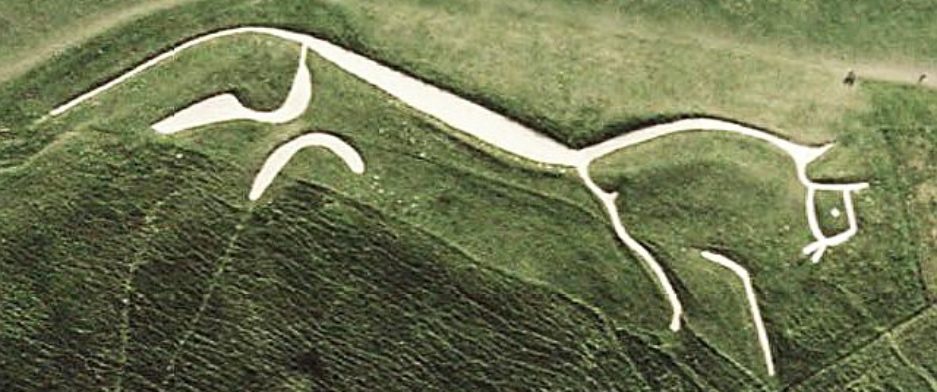Talk given as Writer in Residence at Gladstone’s Library in 2018
I’m posting a link to a talk I gave at Gladstone’s Library last year. I dislike the sound of my recorded voice intensely, so it has taken me more than a year to get up the courage to listen to this. And what a relief to discover that the first voice on the podcast was not my own, but the wonderful Louisa Yates, Director of Collections and Research, who introduced me.
It’s a three part talk. The first part is a kind of Bibliomemoire where I talk about the role of historical narrative and detail in my childhood reading, including Jean Plaidy and Winston Graham’s Poldark series. The second part is a very brief history of the development of the historical novel in the 19th century and its impact on the novel form more generally. Part three is about a particular form of historical novel, the kind that tries to recover or reconstruct the history of those who are usually forgotten, disregarded or silenced by louder voices or brighter, shinier pens – they are usually the losers, in conventional terms at least. It’s here that I talk a little bit about my own novel, Miss Boston and Miss Hargreaves. There’s a really good discussion at the end of the talk too.
Below is a copy of the outline and links I circulated at the talk.
Gladstone’s Library, 10 April 2018: The Historical Novel: A Very Slippery Genre
This isn’t an outline of the lecture but a selection of references, sources and links to material and discussions you may find interesting.
1. Definitions
It is generally recognised that historical fiction is difficult to define and that some aspects of the definition can be arbitrary.
The Historical Novel Society:
https://historicalnovelsociety.org/guides/defining-the-genre/
‘To be deemed historical (in our sense), a novel must have been written at least fifty years after the events described, or have been written by someone who was not alive at the time of those events (who therefore approaches them only by research).
We also consider the following styles of novel to be historical fiction for our purposes: alternate histories (e.g. Robert Harris’ Fatherland), pseudo-histories (e.g. Umberto Eco’s Island of the Day Before), time-slip novels (e.g. Barbara Erskine’s Lady of Hay), historical fantasies (e.g. Bernard Cornwell’s King Arthur trilogy) and multiple-time novels (e.g. Michael Cunningham’s The Hours).’
There’s a good selection of articles, short and long, which take the discussion about definition further which you can access from the link above.
2. Genre
Genres aren’t just ways of writing or sets of stylistic tropes. They are also ways of organising knowledge which shape how we read and think as well as markets and readers. There are a number of organisations or institutions that play a part in the definition, regulation and promotion of historical fiction. Here are a few of the major ones in Britain, though they aren’t exclusively British.
The Historical Writers’ Association: is an association for writers, agents and publishers of historical writing, fiction and non-fiction. The inclusion of both recognises the networks of writers within the field, connections produced by conferences and festivals and authors who write across both e.g. Alison Weir is one example.
The Historical Novel Society (see above) has a more general promotional purpose and is more reader-oriented. It is a membership organisation with a magazine, conference etc. The conference intends to appeal to readers, writers, publishers and agents.
The Walter Scott Prize for Historical Fiction is a relatively new prize established in 2010 and offers £25000 to the winner. You can read more about it here http://www.walterscottprize.co.uk
Cultural prizes are promotional, raising the image of the field, in this case historical fiction and individual titles within it at a time when there are a very large number of new fiction titles (In 2015, 32,882 fiction titles deposited at British Library, a legal requirement for new books, out of a 173,000 new or revised titles – figures are from various sources collated by the Publishers’ Association.)
https://www.publishers.org.uk/resources/uk-market/pa-stats-snapshots/
3. Theorising the Historical Novel
George Lukacs, The Historical Novel, originally published in 1936, first published in English in 1955
Interesting piece by Perry Anderson which summarises Lukacs’s arguments and explores various criticisms across a wide range of novels:
https://www.lrb.co.uk/v33/n15/perry-anderson/from-progress-to-catastrophe
John Bowen, ‘The Historical Novel’ – a different approach thinking specifically about the Victorian context:
4. Examples of historical fiction (mentioned in the lecture)
Peter Carey, Jack Maggs (1997)
Michel Faber, The Crimson Petal and the White (2002)
Philippa Gregory, The Other Boleyn Girl (2001)
Winston Graham, The Poldark series (first published between 1945-53 from 1973 to 2002)
Benjamin Myers, The Gallows Pole (2017)
Daphne Du Maurier, Frenchman’s Creek (1941)
Graham Swift, Mothering Sunday (2016)
Sylvia Townsend Warner, Summer Will Show (1936) and The Corner That Held Them (1948)
Sarah Waters, The Night Watch (2006) and The Little Stranger (2009) (and the others!)
5. Farming
Short, Brian, Watkins, Charles, Foot, William and Kinsman, Phil The National Farm Survey, 1941-1943: State Surveillance and the Countryside in England and Wales in the Second World War (2000)
National Archives Guide to the National Farm Survey. http://www.nationalarchives.gov.uk/help-with-your-research/research-guides/national-farm-survey-england-wales-1941-1943/
Ronald Blythe, Akenfield (1969) [There’s also a film of the same name which was made by Peter Hall in 1974 and has recently been reissued on DVD – both book and film are highly recommended]






